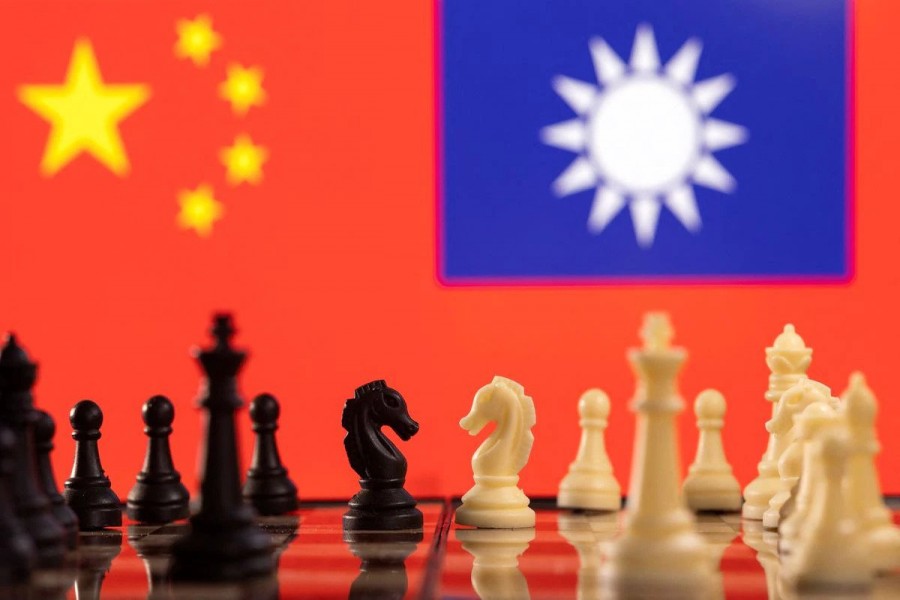Taiwan condemned China on Monday for holding its second military combat drills around the island in less than a month, with the defence ministry saying it had detected 57 Chinese aircraft.
China views democratically-governed Taiwan as its own territory and has been ramping up military, political and economic pressure to assert those claims.
The Eastern Theatre Command of the People's Liberation Army said its forces held "joint combat readiness patrols and actual combat drills" in the sea and airspace around Taiwan, focused on land strikes and sea assaults.
The aim was to test joint combat capabilities and "resolutely counter the provocative actions of external forces and Taiwan independence separatist forces", it added in a brief statement late on Sunday.
Taiwan's presidential office said China was making "groundless accusations" and strongly condemned the drills, saying the peace and stability of the Taiwan Strait and the region were the common responsibility of both Taiwan and China.
Taiwan's position is very clear, in that it will neither escalate conflicts nor provoke disputes, but will firmly defend its sovereignty and security, the office said in a statement.
"The nation's military has a close grasp of the situation in the Taiwan Strait and the surrounding area and responds calmly. Our people can rest assured," it added.
Taiwan's stock market ignored the latest tension, with the benchmark index closing Monday up 2.6 per cent.
The defence ministry said that over the previous 24 hours it had detected 57 Chinese aircraft and four naval vessels operating around the island, including 28 aircraft that flew into Taiwan's air defence zone.
Some of those 28 crossed the median line of the Taiwan Strait, an unofficial buffer between the two sides, among them Su-30 and J-16 fighters, while two nuclear-capable H-6 bombers flew to the south of Taiwan, a ministry map showed.
In China's similar exercises late last month, Taiwan said 43 Chinese aircraft crossed the median line.
China, which has never renounced the use of force to bring the island under its control, has made regular military incursions into the waters and airspace near Taiwan over the past three years.
It held war games around Taiwan last August, following a visit to Taipei by Nancy Pelosi, then the speaker of the US House of Representatives.
US and other lawmakers from the Western allies have continued to visit Taiwan since, despite Beijing's warnings.
Military aggression coming from Beijing was unacceptable, said Johannes Vogel, a senior lawmaker from one of Germany's ruling coalition parties.
"We want to also let you see our visit here as a gesture of support," he told Taiwan parliament speaker You Si-kun on Monday, during a visit by a German parliamentary delegation.
Taiwan strongly rejects Beijing's sovereignty claims, saying only the island's 23 million people can decide their future.
Beijing has been particularly angered by US support for Taiwan, including weapons sales.
Like most nations, the United States has no formal diplomatic ties with Taiwan, but it is the island's most important arms supplier and international backer.


